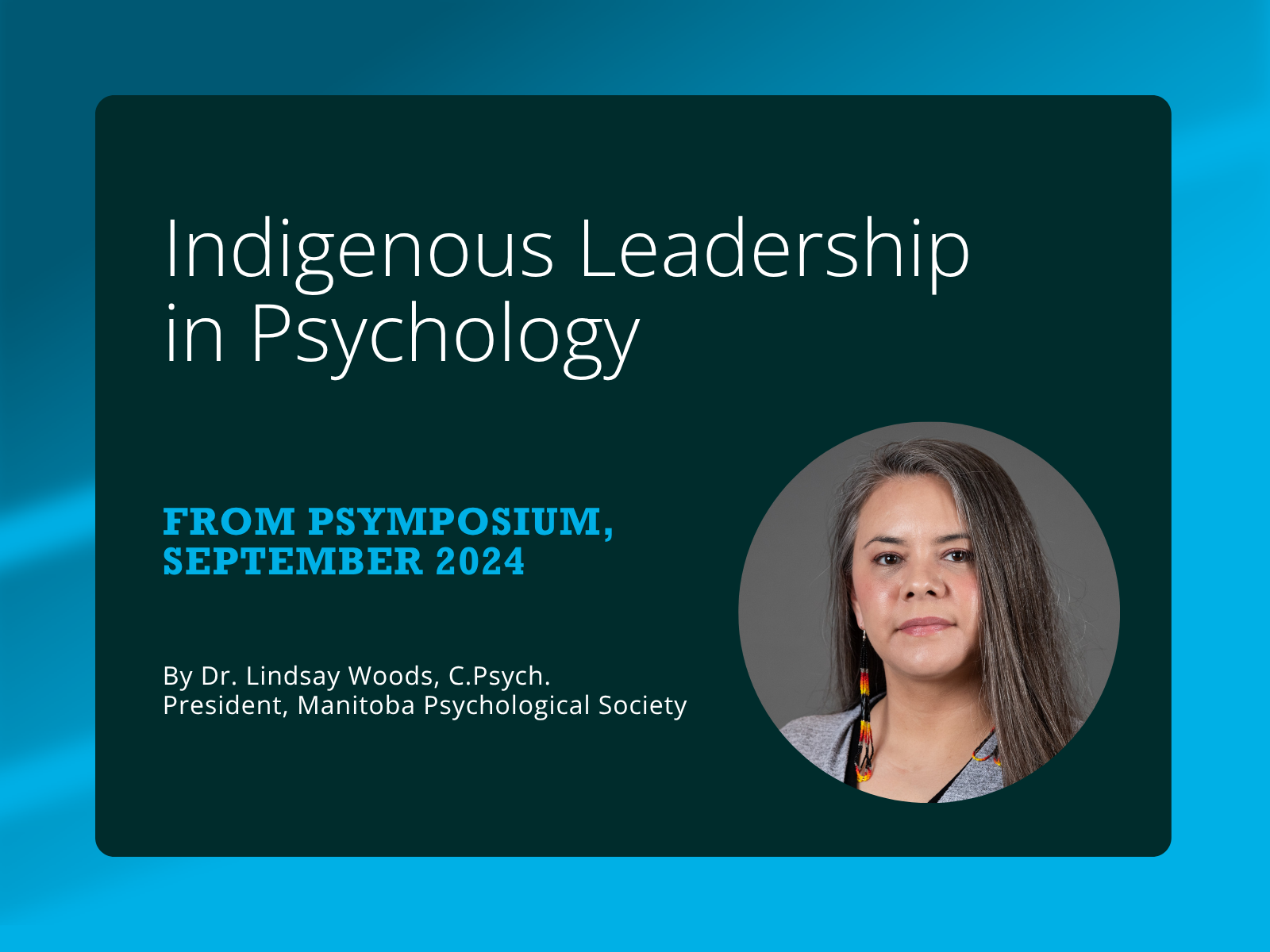
3 minute read
Indigenous Leadership in Psychology
By Dr. Lindsay Woods, C.Psych. (She/Her) President, Manitoba Psychological Society
Dr. Lindsay Woods is a Registered Clinical Psychologist and Director of Clinical Services at a large social services agency in Winnipeg, Manitoba. Dr. Woods has been supporting adults, adolescents, children, parents and families for a wide variety of goals and challenges as a support worker, therapist, and now as a psychologist for a total of 20 years. Dr. Woods took on the role of President for the Manitoba Psychological Society (MPS) and is looking forward to continuing to advocate for and represent psychology in the province of Manitoba.
Growing up in Thunder Bay, ON, with mix settler (French and Irish) and Indigenous (Anishnaabe) ancestry, Dr. Woods was not immersed in Indigenous culture, but this has been a pathway of exploration and re-connection as an adult. Dr. Woods completed her first year of Sundance in 2022 and is looking forward to continuing her Sundance path.
What does it feel like to be an Indigenous psychologist in a leadership role in a professional association?
This is an interesting question and one I have reflected on recently. It was brought to my attention that I might be the first Indigenous leader of a professional psychological association in Canada. This made me feel both proud and apprehensive at the same time. Living in a province with an Indigenous Premier, I can see the impact of having an Indigenous person in that higher-level position. It instills pride in the Indigenous community, gives hope to youth, shows others that we have something important to contribute, but it can also overshadow the hard work that it takes to work towards and take on leadership. The question can be asked: Is it only about being Indigenous?
In my life, I was not raised immersed in Indigenous culture, traditions or spirituality. I grew up in a loving middle-class family, attending Catholic public school and church in an Ontario city. As kids, we attended some events like Pow Wows, but only as observers. We are members of a First Nation in Ontario, but I never lived there. I always had a pull to learn more but that came later in my life. As I moved through life, attended University and learned about myself, I sought out connection with opportunities to learn about Indigenous culture and built a community. These connections, this community, and my participation in Ceremony has become a very important part of my life and my practice as a psychologist.
I am still learning (I will always be learning). This is true for my work as a psychologist, as a leader in psychology, and for myself as an Indigenous person, mother, wife, daughter, friend, and sibling. I see all three aspects of me as important and they overlap significantly. My Indigeneity did not necessarily prepare me for my leadership roles; however, what I have learned will impact how I will move forward in leading. My clinical training, supervisory work and being part of MPS and other boards in the past did prepare me for this leadership role; however, how I do this is highly influenced by my cultural learning.
It has been noted that there is still a risk and a caution in the act of tokenism when a person of colour takes on a leadership role. I would like to encourage and challenge folks to pause, notice, and reflect on how they see people in leadership, their pathway to that place, and how they choose to lead.





